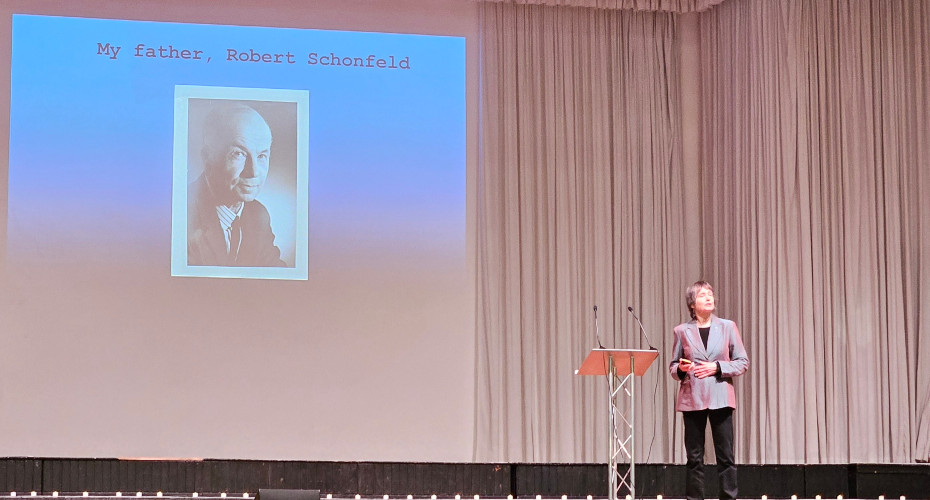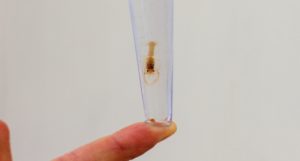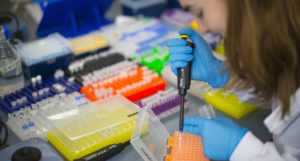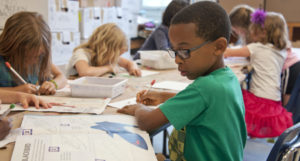Moving event helps South West teenagers reflect on the horrors of the Holocaust

A member of the ‘second generation’, Rosemary Schonfeld, from Devon, whose uncles and grandparents were murdered in Auschwitz, told pupils her family’s story
Teenagers from around the South West were able to learn about and reflect on the horrors of the Holocaust as part of a moving event at the University of Exeter.
The event took place ahead of Holocaust Memorial Day next week, which marks the 80th anniversary of the liberation of the largest Nazi death camp, Auschwitz-Birkenau.
A member of the ‘second generation’, Rosemary Schonfeld, from Devon, whose uncles and grandparents were murdered in Auschwitz, told pupils her family’s story.
The educational conference, now in its 9th year, was designed to show how the lessons of the Holocaust are more relevant than ever today.
Around 150 students in Years 10 to 13 from Callywith College, Magna Academy, St James School in Exeter and Stoke Damerel Community College in Plymouth attended the event.
The event was organised by the University of Exeter’s Widening Participation team and Barnabas Balint, an Exeter history graduate and now a researcher at the University of Oxford and the United States Holocaust Memorial Museum.
Barnabas said: “Despite the passage of 80 years, the hatred that led to the Holocaust is still very much alive today. That is why we come together each year, to learn about where hatred and division can lead.”
Barnabas and academics who conduct research into the Holocaust – Dr Lucinda Fenny and Leah Lawford – ran workshops for students. These taught students about the lives of Holocaust victims, the Holocaust in Cinema, and the artwork of Holocaust survivor Samuel Bak.
Rosemary’s father was a Czech refugee who made his new home in England. Her uncles and grandmother were murdered in Auschwitz and Treblinka. Her book, Finding Relly, follows her path to finding out whether Relly, who had been married to her father’s brother and survived Auschwitz, was still alive.
Rosemary grew up unaware her father was Jewish. As an adult she started tracing the story of her relatives and learned more about the deaths of her uncles and grandparents, as well as their role in the Czech resistance. She tracked down Relly, who had been married to her father’s brother and survived Auschwitz.
After surviving the Holocaust, Relly married and raised her family in Israel and Australia. Rosemary visited her on many occasions, when she was welcomed as a long-lost niece, and this had a significant impact on her life. These conversations helped Rosemary understand what happened to her family.
As well as sharing her story, Rosemary helped pupils understand the changing geography of Europe after World War One and the part that played in Jewish migration across the continent.
Reflecting on the event, one student said: “Young people have the responsibility of remembering those who died and were affected by the Holocaust, as well as continuing to teach others about the Holocaust in order to prevent a similar event happening again.”



